The Creative Nonfiction Film Weekend 2025
Individual tickets are on sale via the Rio Cinema website. Festival passes are available below.
This year, CNFW will offer a specific focus on ‘personal documentary’. Join us over the course of a carefully curated weekend of screenings and events to explore all of the wildly different ways that a film can be personal.
The Creative Nonfiction Film Weekend is intended as a collective, communal event, as opposed to a series of individual screenings. The whole programme (and particularly each day of screenings) was programmed for the films to speak to one another, building a rich and cohesive picture of personal documentary filmmaking.
For that reason, we are offering festival passes to encourage festival goers to attend the whole weekend.
All films will be presented with either descriptive captions or subtitled language for accessibility (see notes under each individual screening).
- All screenings at the festival, including Friday’s opening night screening
- The chance to book a slot for Joe Bini’s piece Burden of Other People’s Dreams (subject to availability)
- MS Slavic 7 (with short film Point and Line to Plane)
- Kings & Extras: Digging For a Palestinian Image
- Debut, or, Objects of the Field of Debris as Currently Catalogued (UK Premiere) + Q&A
- Shared Resources + Q&A
- The Taste of Mango + Q&A
- All These Summers (UK Premiere) + Q&A
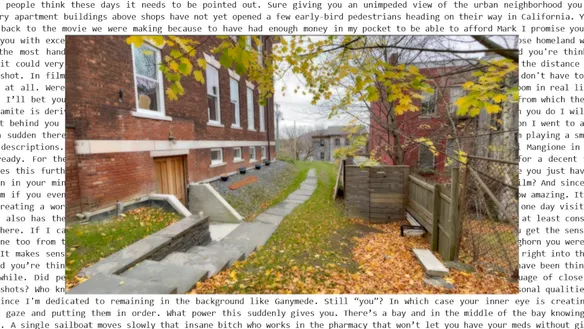
Burden of Other People’s Dreams is an attempt to cross the experience of reading a book with the experience of watching a film.
Created by renowned film editor Joe Bini (Grizzly Man, All the Beauty and the Bloodshed, You Were Never Really Here), the piece explores the psychology of anonymity required in being an editor. Combining words and imagery, physical and digital media, it blurs the lines between fiction and non-fiction to tell a story about how stories are told.
Presented at the festival will be a work-in-progress excerpt of what will eventually be a longer piece with multiple chapters. This excerpt is designed to be experienced one person at a time. We will be offering multiple slots to book throughout all three days of the festival.
Accessibility: This video element of this piece will have descriptive captions available upon request.
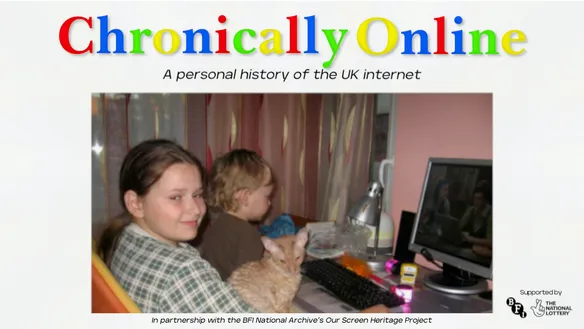
We all have that one YouTube video we’re obsessed with. Or that one vine that we think about more than most movies.
Join us for a night of digital delights on the big screen: a programme of online video that showcases the stories Britain tells about itself through the internet. From vlogs to memes to uncategorisable curiosities, these videos might not have initially been intended as ‘cinema’, but what is cinema if not images and narratives that are so iconic that they stick in our heads?
Then, hear from a panel of online creators about living a life online and creating art for the internet.
‘Chronically Online’ is presented in partnership with Our Screen Heritage, supported by the BFI Screen Heritage Fund, awarding National Lottery Funding.
Accessibility: This programme will feature descriptive captions.
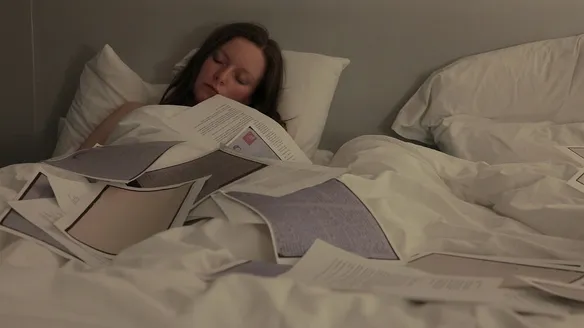
A showcase of two films from Sofia Bohdanowicz’s Audrey project, an ongoing series of films made in collaboration with actor Deragh Campbell. Together, Bohdanowicz and Campbell have created the character of Audrey as an amalgamation of themselves, exploring different facets of Bohdanowicz’s personal life and research through her conduit persona.
MS Slavic 7, 2019 (64m): After being appointed literary executor, Audrey Benac (Deragh Campbell) uncovers a series of letters that her great-grandmother had written to a fellow poet. Both displaced from Poland, Zofia Bohdanowiczowa and Nobel Prize nominee Jozef Wittlin corresponded from 1957-1964 between Toronto, Wales and New York City. Over the course of three days, Audrey embarks on a journey to Houghton Library at Harvard University to translate and make sense of Zofia’s words.
Point and Line to Plane, 2020 (17m): Devastated after the death of a friend, Audrey attempts to extract meaning from this intense loss as she discovers signs in her daily life and through encounters with the art of Hilma af Klint and Wassily Kandinsky.
Accessibility: The films will be shown with subtitled dialogue.
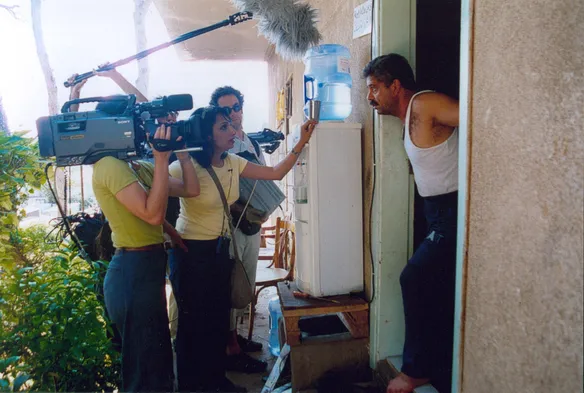
The films in the PLO Media Unit were supposed to show a self-determined image of Palestinian reality – and they went missing during the Israeli invasion of Beirut in 1982. In a road movie from Palestine to Jordan, Syria and Lebanon, director Azza El-Hassan follows the contradicting and confusing clues as to the whereabouts of the lost archive. But, in her usual, inimitable way, she keeps finding people and places in the purest documentary style: finding myths, life stories, life lies – collecting the effects of defeat, loss, and pain. She even brings some humour to the tragedy of the situation with which she identifies and, at the same time, rejects.
Accessibility: This film will be shown with subtitled dialogue.
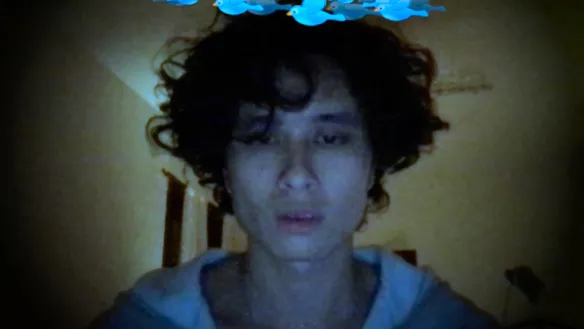
The first feature-length film by Julian Castronovo follows a young filmmaker named Julian Castronovo who discovers a trail of clues related to the disappearance of a skilled art forger known as Fawn Ma.
Accessibility: This film will be shown with descriptive captions.
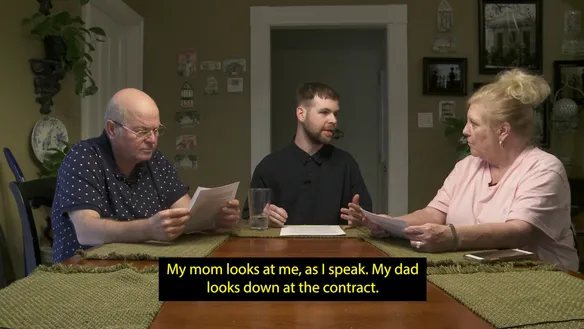
This film will be introduced by Tom de Lancy Green, curator for Rhizome Spring.
Shared Resources depicts Lord’s family after their father was fired from his job as a debt collector and their parents declared bankruptcy, largely due to the filmmaker’s student debt. Following their parents’ day-to-day lives and their dad’s progressing disability, the film uses open captions and visual descriptions to provide access to Blind and Deaf audiences and to reflect how their family sees themselves in the film. Meanwhile, as Lord and their parents confront their very different understandings of debt and disability, the film asks what it means to owe each other everything.
Accessibility: Descriptive captions and full audio description is built into this film, and these elements are intrinsic to the film’s creative approach.

In her debut feature documentary, a cinematic love letter spanning time and generations, Chloe Abrahams probes at raw questions her mother and grandmother have long brushed aside, untangling painful knots in her family’s unspoken past.
This event is supported by the BFI Doc Society Fund.
Accessibility: This film will be shown with descriptive captions.
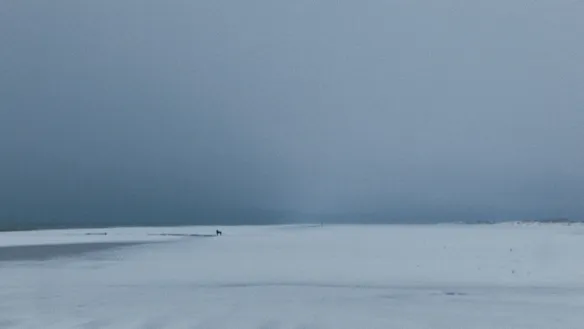
Driven by a recurring urge to encounter strangers with her camera, the filmmaker begins to film her solitary Greek Cypriot neighbour Pete in the tower block in North London where they both live. Around the same time, her father in Denmark receives a cancer diagnosis requiring her to spend more time with him. As her father gradually slips back into the depression that made him absent when she was a teenager, she feels a need to document this transition. Her compulsion to enter into Pete’s life and to film him echoes with her desire for understanding her father’s experience of isolation and loneliness, as well as her own relationship to it. Filmed handheld and with an unwavering gaze, All These Summers asks questions about responsibility in life and in film whilst intimately confronting the complexities of the daughter-father and filmmaker-subject relationship.
Accessibility: This film will be shown with subtitled dialogue.
Sponsors & Partners



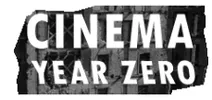
Our festival is supported by Film Hub London, managed by Film London. A proud partner of the BFI Film Audience Network, funded by the National Lottery. This year, CNFW has also received additional support from DocSociety. Our partners include the BFI National Archive's Our Screen Heritage Project for our 'Chronically Online' opening night programme, and Cinema Year Zero for our print programme.